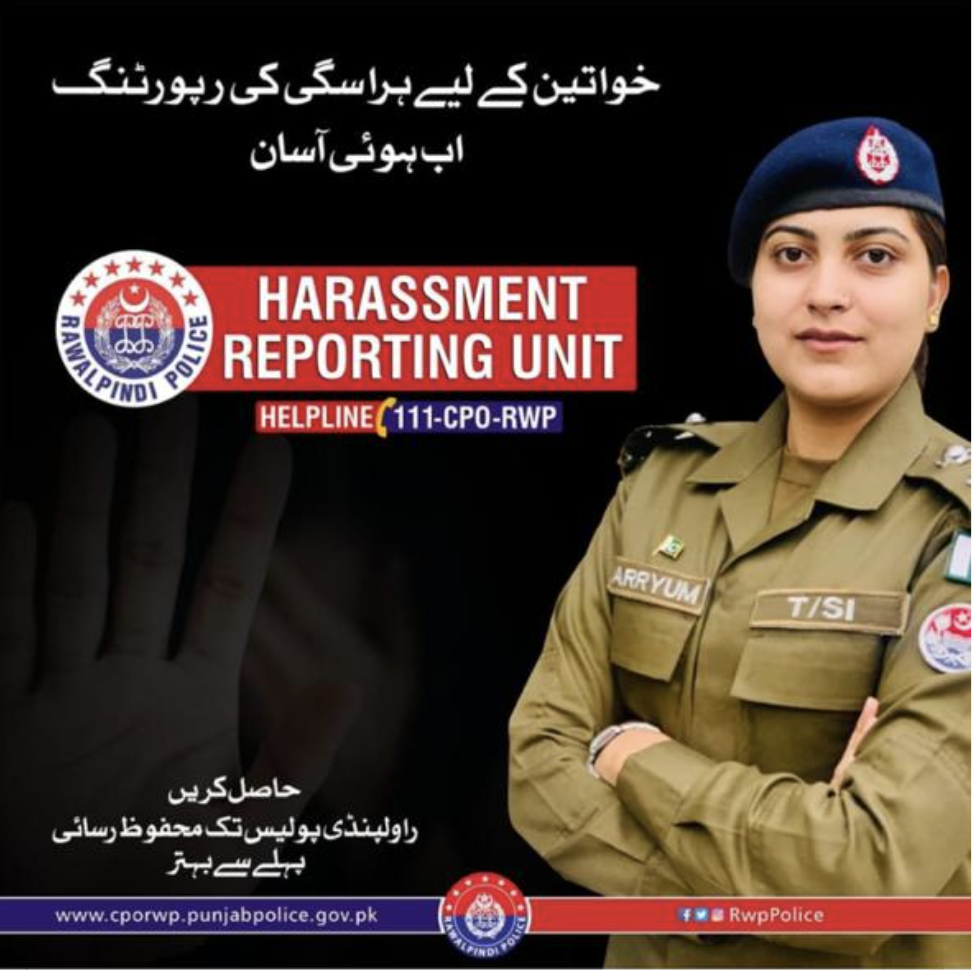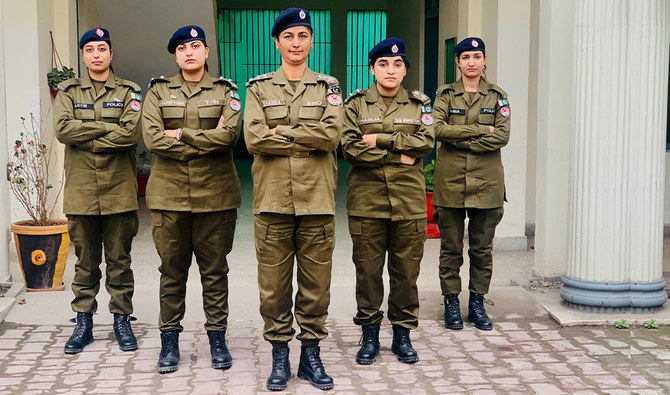RAWALPINDI: Police in the Pakistani city of Rawalpindi are hoping a new hotline operated by women and launched this week will help streamline the reporting of abuse and encourage more women to come forward with complaints.
Rawalpindi Police have registered 320 reports of abuse filed by women since the beginning of the year, though activists say this is only a fraction of the actual number of cases in a city of over 2.2 million.
“A number of times we have come across situations where women have suffered and they would not report because of the fact that they have to go to a police station,” Rawalpindi Police chief Deputy Inspector General Ahsan Younas told Arab News, explaining why the hotline was an important step.
An “institutional bias” in harassment cases, Younas said, discouraged women from reporting abuse, especially to male officers. But now the hotline would eliminate the need to go to a police station to file a report and also protect victims’ identities.
The initiative is the brainchild of Assistant Superintendent of Police Amna Baig who observed a surge in the reporting of abuse cases while she was posted in the Waris Shah district.
“The reason there was a surge in reports of harassment was that I was on the receiving end of the report as opposed to a male officer,” Baig said. “Women were saying they had these complaints for a long time but did not feel comfortable speaking to anyone but a fellow woman.”
Now posted in Rawalpindi, Baig decided to set up the hotline and said one suspect had already been arrested through it.

A flyer for the new harassment reporting hotline released by Rawalpindi Police on December 8, 2020. (Photo courtesy: Rawalpindi Police)
The process works such that a caller is directed to a sub-inspector who hears the complaint, offers help from a team of policewomen and launches criminal proceedings.
“They respond quickly and within five minutes, your sub-inspector has taken all the information, the addresses, the numbers, and from there we are trying our best to make sure that the response time is not more than half an hour,” Baig said.
“We want the women of our city to know that from the moment they call to the moment we can close the case, we are with you.”
Maria Tahir, a lawyer who has worked on harassment cases, said the hotline was likely to encourage more women to report abuse because they would have a “safe environment to go to” but cautioned that what needed to change was a ‘culture’ that dismissed harassment as a serious problem.
Police chief Younas assured the situation would improve.
“At times we do receive complaints, but they are not followed through, or the reporter is unfortunately forced to compromise,” he said. “But now we will be following through on each complaint to make it clear that in the case of any violation perpetrators should be ready to face the music.”


















